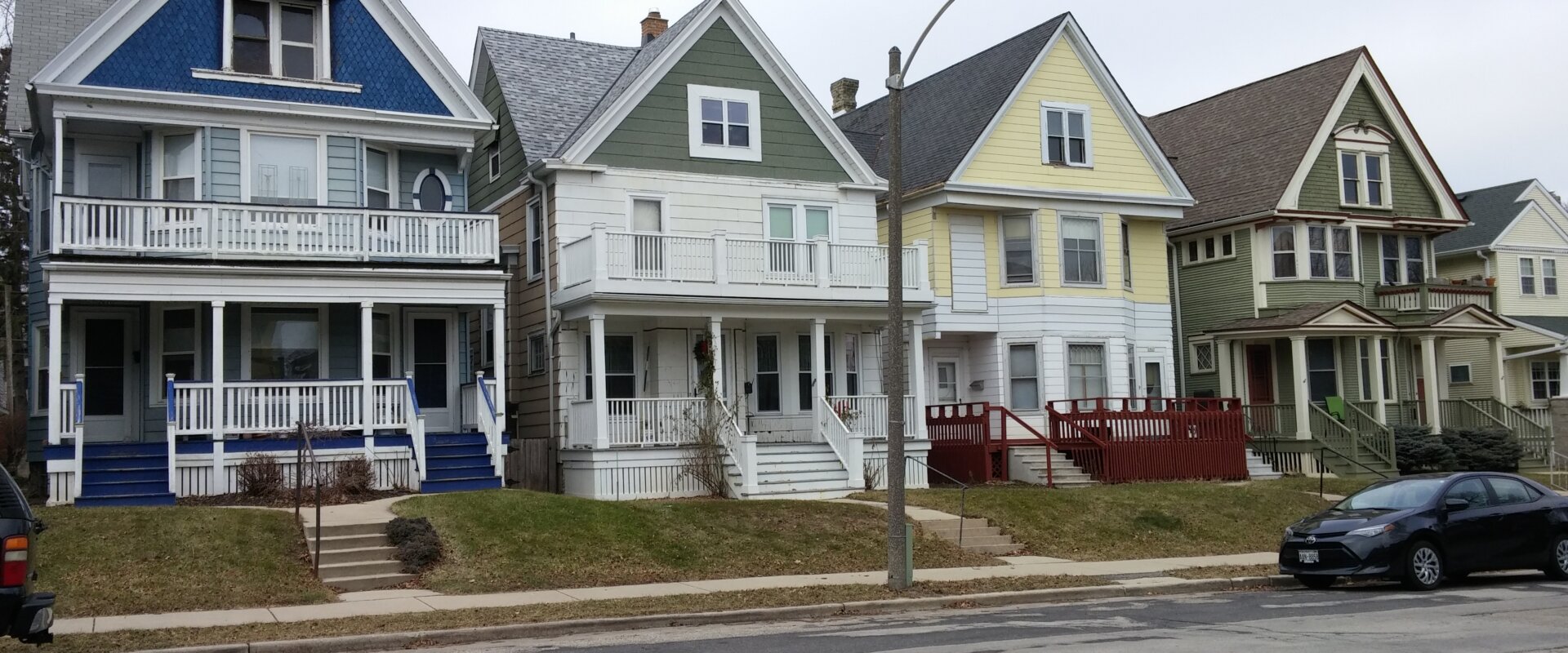
Anyone who’s been a landlord for any length of item knows that headaches and hassles are simply part of the job description. And number-one among those headaches/hassles is problem tenants. For truly bad tenants in Wisconsin, eviction is always an option. But that can be a lengthy and expensive process, so it’s better to find other ways to deal with bad tenants to solve the problems. Below, you’ll find 5 ways to deal with bad tenants in Wisconsin in order to avoid having to have recourse to eviction.
1. Tenants Who Won’t Pay
A common issue faced by Wisconsin landlords is tenants who fail to pay their rent, significantly impacting your cash flow. Many landlords initially assume non-payment is due to tenants’ unwillingness to pay, but often the reality is more complex. Tenants may experience financial difficulties such as temporary unemployment, unexpected medical expenses, or other financial hardships that impede their ability to pay rent on time.
Understanding these underlying reasons is crucial. Non-payment is often not due to malicious intent but rather due to circumstances beyond the tenant’s control. Open communication can help uncover the root cause of non-payment. For instance, engaging in a candid conversation with the tenant may reveal temporary financial struggles or disputes over maintenance that can be addressed. Effective negotiation strategies, such as setting up a payment plan, can often resolve these issues without escalating the situation.
To tackle non-payment issues, landlords can implement several practical solutions. One effective approach is to establish a payment plan that accommodates the tenant’s financial situation, such as allowing the following…
- Implement a policy of accepting a partial payment from a resident once per year
- Prorate the late fees and delinquent rent over the remainder of the tenant’s lease
- Allow weekly partial payments instead of larger monthly payments
- Apply the security deposit to the delinquent rent payments
Another option is to consider alternative living arrangements, such as helping the tenant find a roommate or relocating them to a smaller, more affordable unit. By taking these proactive steps, landlords can often maintain positive tenant relationships and ensure continued cash flow.
2. Tenants Having Problems With Other Tenants
And then there are those who are bad tenants in Wisconsin landlords often encounter is dealing with tenants who disturb others due to loud or obnoxious behavior. Despite thorough screening, such tenants can occasionally slip through, creating significant problems for you and other residents. Issues such as noise complaints, disruptive behavior, and general disregard for community rules can severely impact the living environment and overall tenant satisfaction.
The first step in dealing with this kind of problem tenant is to encourage and allow the tenants to resolve the problem themselves. Make a clause in the lease that specifically states that all tenants are to make every able attempt to settle arguments without your intervention. This approach not only empowers tenants but also reduces the likelihood of frequent complaints. This can also foster a sense of responsibility and community among tenants Include a message stating that if you must get involved, one tenant might not be pleased with the resolution, and someone stands a good chance of leaving the property.
However, there are times when landlord intervention becomes necessary. In such cases, mediation can be an effective tool. Arrange a meeting with the involved parties to discuss the issues calmly and outline the consequences of continued disruptive behavior. It’s important to explain that unresolved conflicts can lead to lease termination or other penalties. Additionally, ensure that your lease agreements contain clear rules and regulations regarding noise levels and other community standards. Enforcing these policies consistently helps maintain a peaceful living environment and demonstrates to tenants that their concerns are taken seriously.
3. Tenants Who Pay Late
Some tenants do pay, but they always pay late – not withholding payment, but just late. In dealing with these bad tenants in Wisconsin, it’s wise to keep in mind that the reason for late rent payments may be fairly innocent, something like mere forgetfulness.
You could meet with these tenants to discuss their situation and why the rent is always late. You could also do things like waive late fees and other penalties if they promise to pay any late rent in full. Another effective tactic is to send out payment reminders. Though it takes a little extra effort and time, it could be an easy fix for the problem.
4. Don’t Renew the Lease
When the methods outlined above for dealing with bad tenants in Wisconsin don’t produce results, you still may not have to resort to eviction.
An option you have at this point is simply to refuse to renew the lease. Just be aware that this typically isn’t an immediate solution and that you need to understand your local laws related to tenant protections before you do this. Usually, you can send your tenant a letter that informs them that their lease will not be renewed once it expires. You may need to give them 30, 60, or 90 days’ notice, depending on your state and local laws.
It’s also crucial to handle this process with sensitivity and professionalism. Clearly communicate the reasons for not renewing the lease, ensuring that your decision aligns with any legal requirements and avoids discriminatory practices. Providing the tenant with sufficient time to find alternative housing can help minimize disruption and reduce the likelihood of disputes. Additionally, consider offering support or resources to assist them in the transition, such as referrals to other rental properties or housing services. By managing the lease non-renewal process effectively, you can resolve tenant issues while maintaining a fair and respectful approach.
5. Consider a “Cash for Keys” Agreement
Another last-resort solution, short of eviction, for dealing with bad tenants in Wisconsin is the “cash for keys” agreement. It will cost you, but it will also get a bad tenant out of your hair and solve the problem. A cash for keys agreement is a legally binding contract, whereby you pay a tenant a lump sum of money, and their lease is canceled, and they have to move out of your property.
But, you may be wondering, why should you pay a bad tenant to move out? For the simple reason that it makes financial sense.
It can easily cost $5,000 to evict a tenant and take months to do so. If you can just pay $1,000 and have a bad tenant move out within a week, you’ll be able to save a bunch of money – and start renting your property to a more qualified tenant right away.
But Be Careful . . .
Whatever method you choose to deploy in dealing with bad tenants, make sure you’re aware of all the legal ramifications and implications. Tenant-protection laws are far broader than they were just a few years ago. Your best bet is to consult an experienced Wisconsin investor to get help understanding exactly what you can and can’t do as a landlord. So for assistance dealing with bad tenants in Wisconsin, contact us today at (920) 851-9727.

